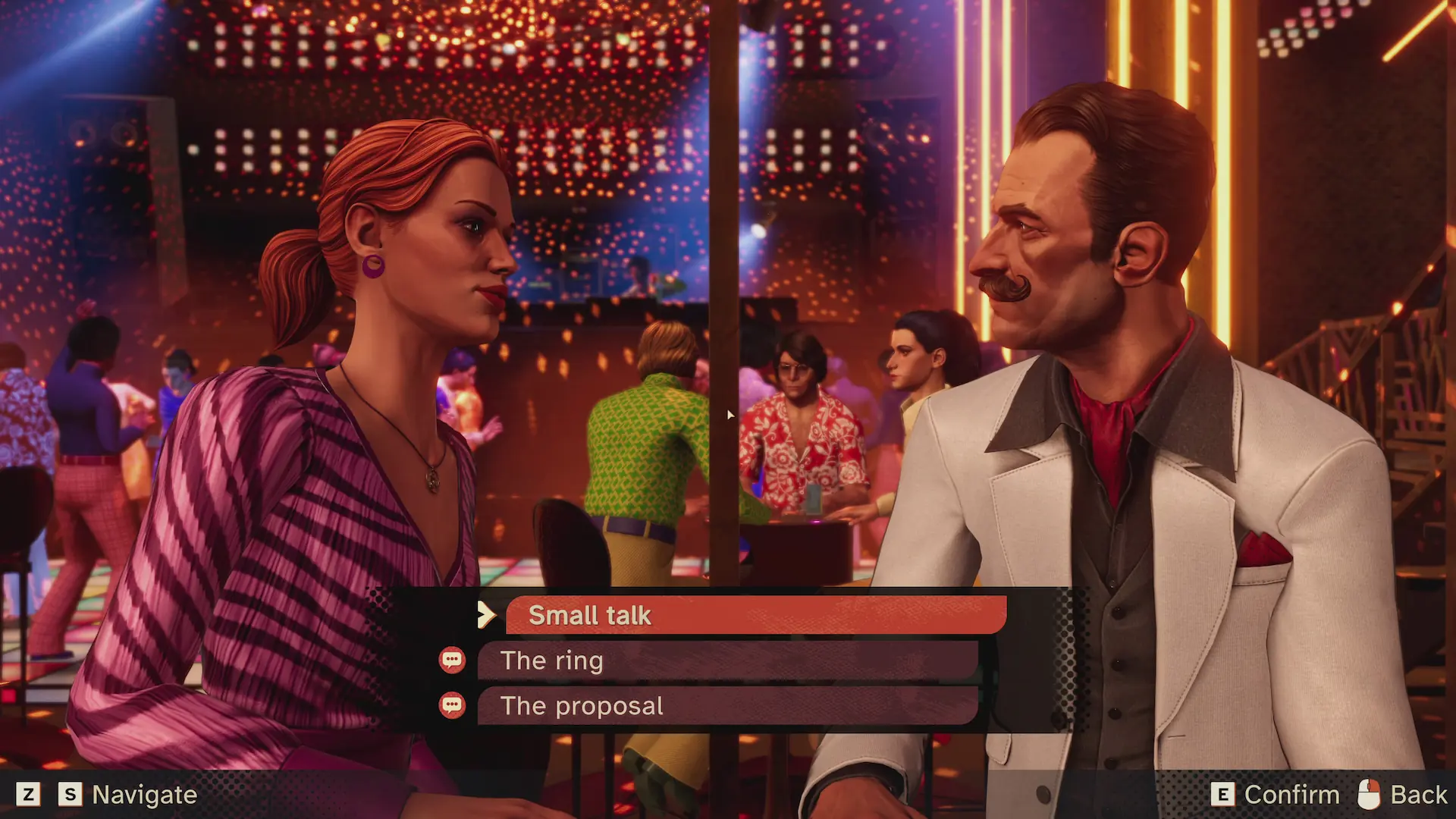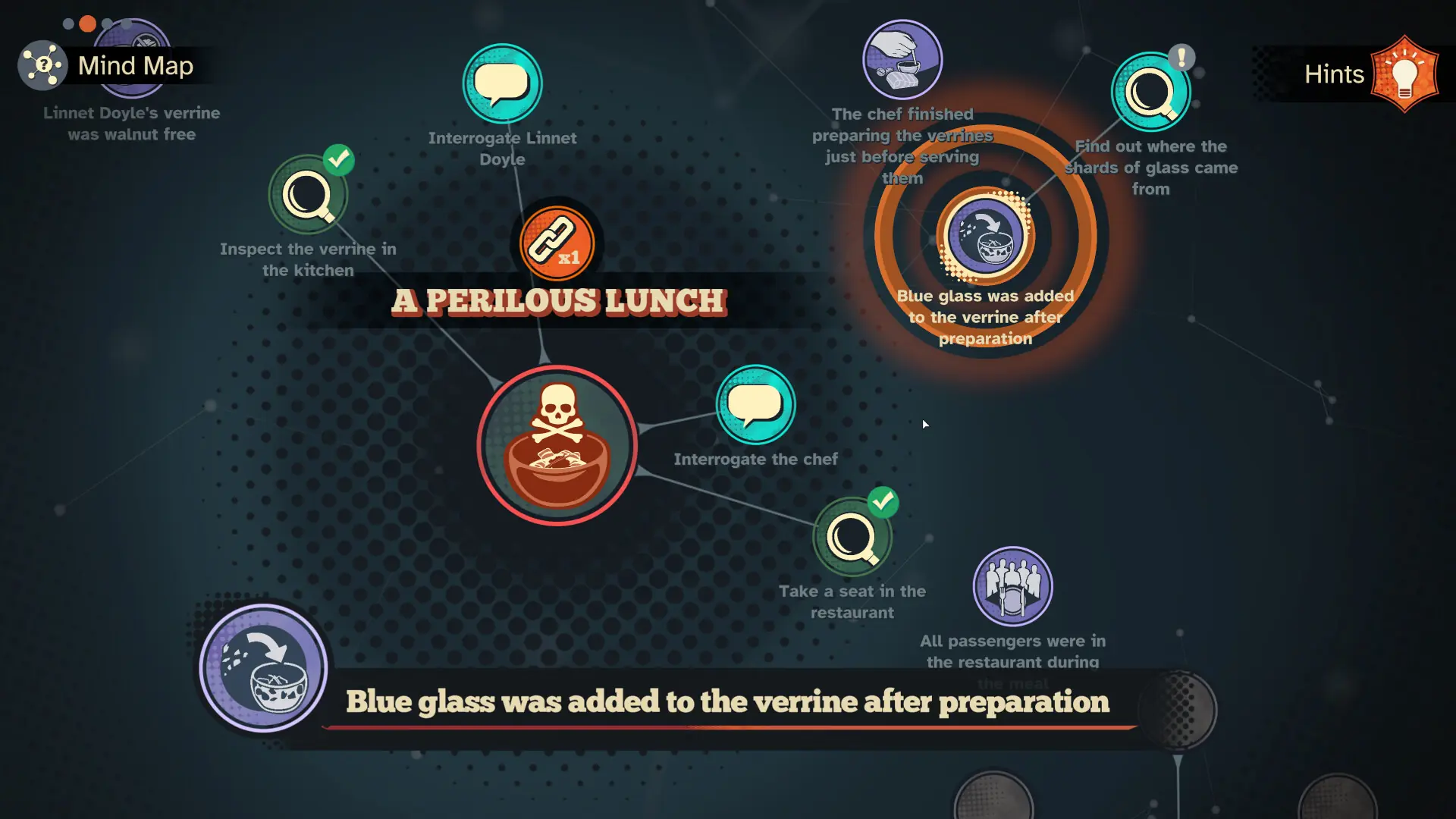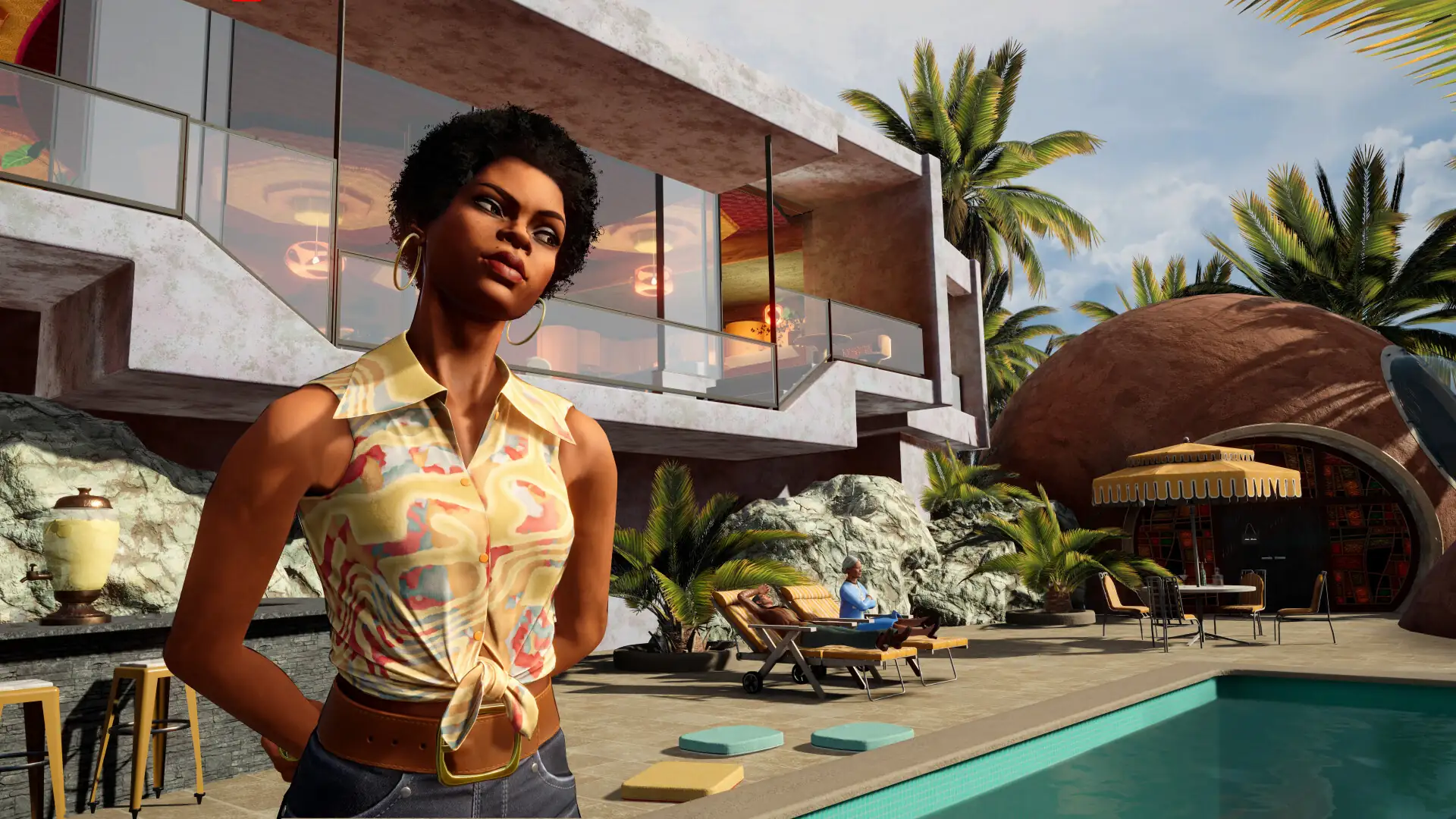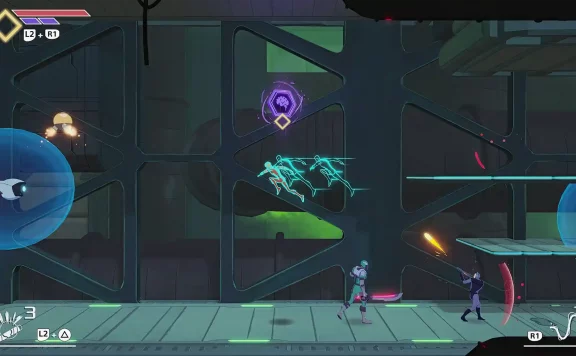I love a good detective game. Sleuthing around, gathering clues, solving puzzles and making deductions can all add up to make a satisfying experience that feels as close to real detective work as possible within the confines of a video game. While I typically gravitate towards the (excellent) Sherlock series, I’ve got a bit of a soft spot for some of Microids older Poirot games. The isometric games, while very basic, still had me hooked due to the swift pacing and generally decent writing. Unfortunately these are qualities that don’t seem to have made it to Agatha Christie – Death on the Nile, which thanks to a terrible B-plot, becomes a Poirot game where you’re regularly torn away from actually playing as the man himself.
First impressions weren’t bad though. We’re thrust into a funky 70’s disco in London, complete with funky 70’s UI and funky 70’s soundtrack, where we meet Poirot and a host of other characters. As we learn the basics of flexing our little grey cells, we’re introduced to one of my favourite mechanics in the game: profiling. Throughout the game you’ll meet key characters who get added to your profile database. As you converse with them you’ll pick up nuggets of information about them, such as their first and last name, what they do for work, relationship to other people and, if you’re lucky, their “secret”. This could be anything from being secretly in love with another character, right through to being a murderer, so right off the bat you get an idea of the type of people you’ll be dealing with throughout the game.

Everything is marked as blank initially, and as you talk to them and other people you start to build up a collection of facts about the person which can then be added to their profile. It’s a great idea as there’s a lot of people you’ll meet throughout the game so actively engaging in the profiling helps you commit their stories to memory, and helps provide some “aha!” moments throughout the story as you realise who’s a secret agent or investigating their employer, before using it to finally complete their profile.
As you move through the world you’ll learn about the particular mystery you’re trying to solve by talking to people, finding clues, and solving puzzles. The game can be quite varied at times, throwing in bespoke elaborate multi-step puzzles that’ll have you working through multiple layers before achieving your goal. You’ll confront culprits, pilot a cruise ship, play arcade games, sneak about and generally do all sorts of stuff you would and wouldn’t expect from a detective. There’s also a fantastic lockpicking minigame, which turns it from something you can speed through relatively quickly to a fun diversion that requires you actively thinking about each movement you make.
All the clues you find get logged in your menu and the game helpfully announces when you’ve got clues that can be connected to make deductions. It could become quite a messy system but Microids does a good job of segmenting the different tasks at hand, grouping different threads into individual mind maps with core mysteries at the centre. Unlock that central node and you’ll be able to tackle that mystery, which could involve anything from narrowing down a list of culprits through to fully reconstructing the timeline of events, Arkham Knight style. There’s a generous hint system, typically giving you two hints before the full solution (or skipping the segment in the case of the more action-oriented sequences), without penalising you or making a fuss that you’re skipping things. It’s appreciated, and although none of the puzzles seemed overly difficult, there are certain types that my brain just struggles to process, so being able to quickly get a little leg up here and there was very handy.

Poirot is a charming character and I like the depiction of him here. He’s gentlemanly, astute, and while not quite suave, he’s definitely got a certain je ne sais quoi, partially driven by seeing him in the setting. His iconic moustache feels particularly at home, so much so that the game has golden moustaches dotted around each level to find as collectibles.
Unfortunately the writing doesn’t quite do his character justice, and at times he feels like less of a professional and more of an amateur armchair Reddit detective. When there’s an attempted murder on the life of a fellow cruise guest involving broken shards of glass in their food, you’ll spend a large chunk of time narrowing down the suspects and deduce the glass came from a blue bottle. At this point, you’ll be tasked with asking each suspect outright if they’ve lost a blue bottle which feels a bit on the nose, and surely someone as seasoned as Hercule Poirot would find a more subtle route rather than essentially asking everyone “did you try and do a murder?”

This also isn’t the lowest point for the narrative, sadly. In a game about Poirot, you’re only actually playing as him about half the time. The rest of the time you play as Jane Royce, an original character created to drive forward the games B-plot which kicks off in the same intro sequence where we meet Poirot. It’s ludicrous: a poorly written globe-trotting conspiracy theory driven by a charisma-lacking protagonist that has you wishing for each segment to end so you can get back to the game you thought you were playing. Jane isn’t particularly likeable and makes decisions that seem at odds with her amateur detective status. At one point she stands in a secluded alleyway with a man she believes to be a killer working on behalf of the organisation she’s chasing, with no witnesses around, and proceeds to outright ask him if he works for them. I’m all for suspending my disbelief, but this seemed idiotic and had me longing to be back on the Sudan surrounded by the rich, beautiful, and murderous.
Agatha Christie – Death on the Nile has some inventive puzzles and the generous hint system makes it difficult to get stuck to the point of frustration, but I found the writing and focus on the B-plot to be an unwanted distraction. I signed up to play a Poirot game that makes me feel like the man himself and unfortunately Death on the Nile just doesn’t fit the bill.



